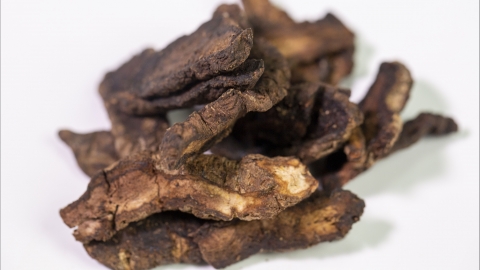Is it safe to take Rehmannia glutinosa combined with Cornus officinalis?
Generally speaking, it is acceptable to consume Rehmannia root combined with Cornus officinalis, but it should be taken in appropriate amounts under the guidance of a physician. The specific analysis is as follows:

Rehmannia root is cold in nature, with a sweet and bitter taste, and enters the liver, kidney, and spleen meridians. It functions to nourish the blood, enrich yin, clear heat, and promote body fluid production. Cornus officinalis has an acidic and astringent taste, is slightly warm in nature, and enters the liver and kidney meridians. It functions to nourish the liver and kidney and to consolidate and astringe. When consumed together in appropriate amounts, their therapeutic effects can complement each other, enhancing the effect of nourishing yin and benefiting the kidneys, and treating conditions such as dizziness and tinnitus (What causes dizziness and tinnitus), weakness and soreness of the waist and knees, and impotence.
However, for individuals with a constitution prone to yang deficiency and cold-dampness, or those experiencing symptoms such as spleen-stomach cold deficiency, indigestion, or diarrhea, the combination of Rehmannia root and Cornus officinalis may be excessively nourishing and greasy, making it difficult to digest and absorb, and could even exacerbate internal cold-dampness, leading to problems such as abdominal distension and reduced appetite. Therefore, prior to deciding to consume Rehmannia root combined with Cornus officinalis, one should consult a qualified traditional Chinese medicine practitioner to ensure appropriate treatment based on individual conditions.
In daily life, it is recommended to maintain good lifestyle habits, follow a balanced diet, and avoid excessive fatigue to promote recovery of health.




